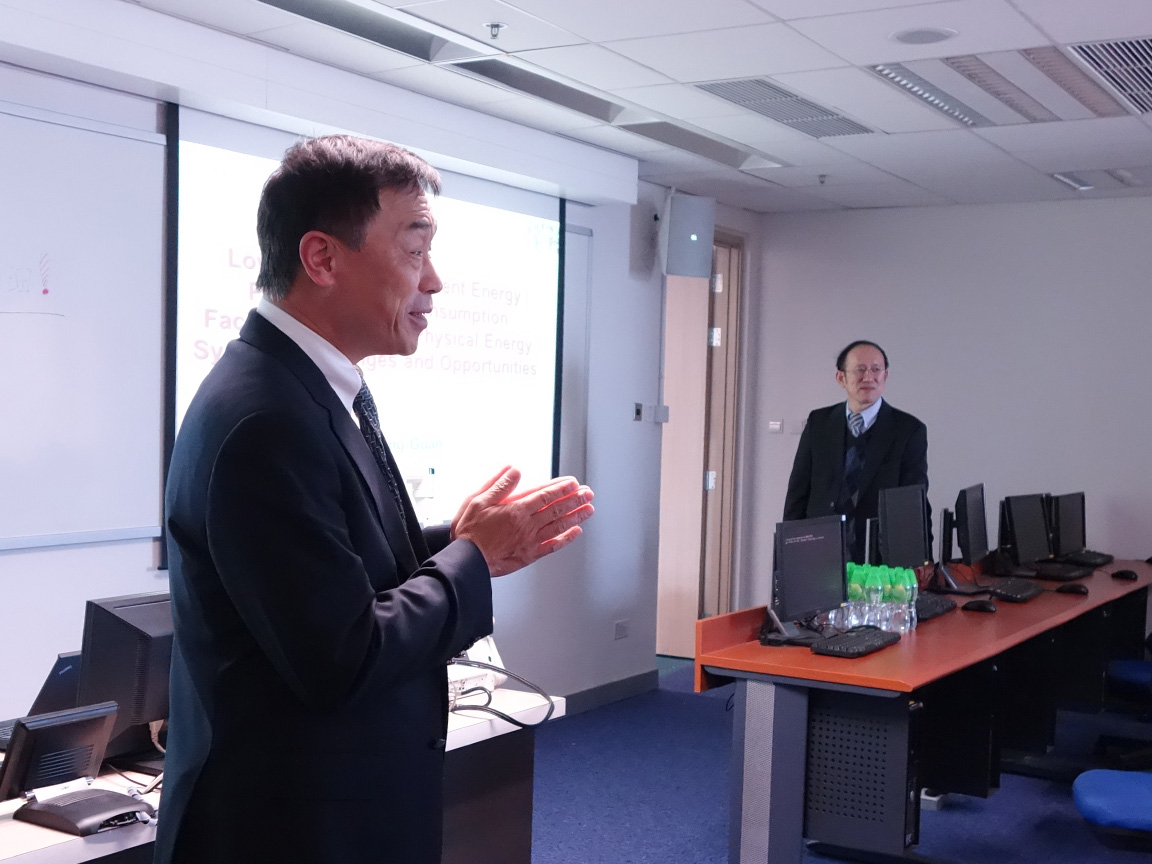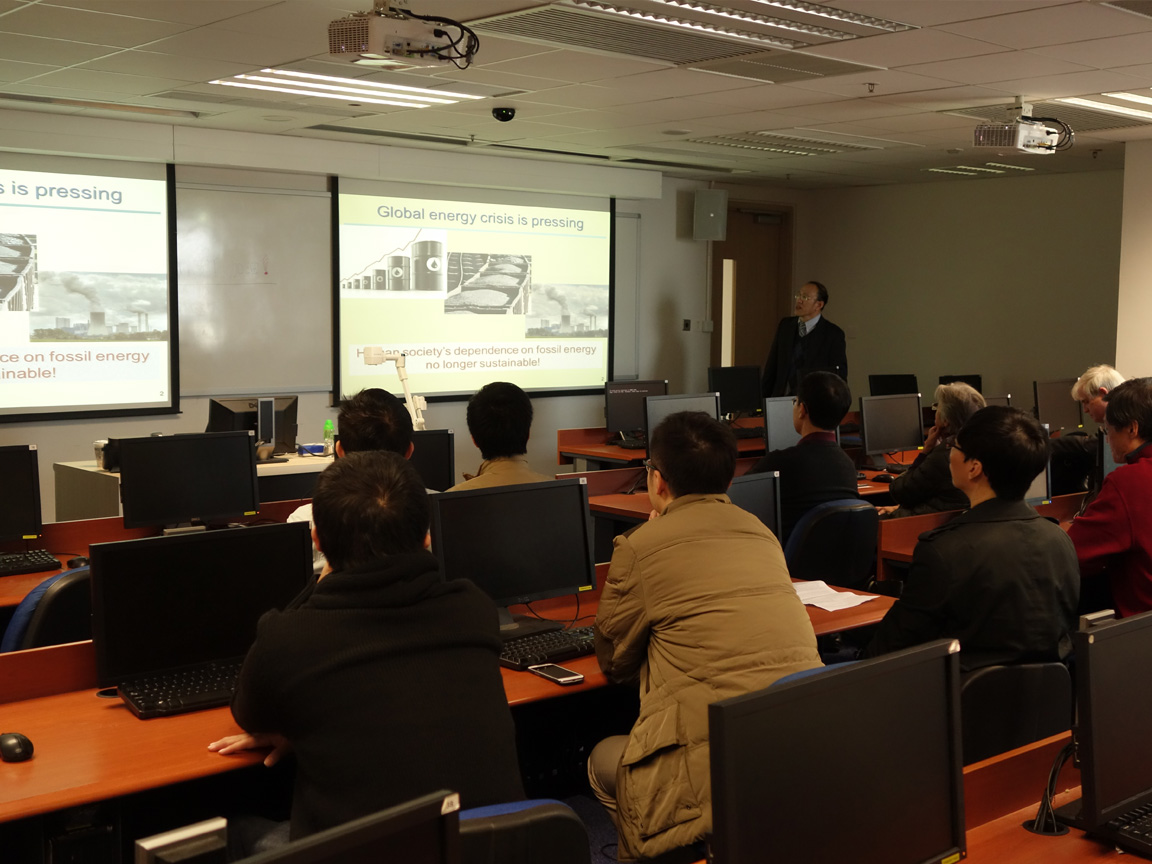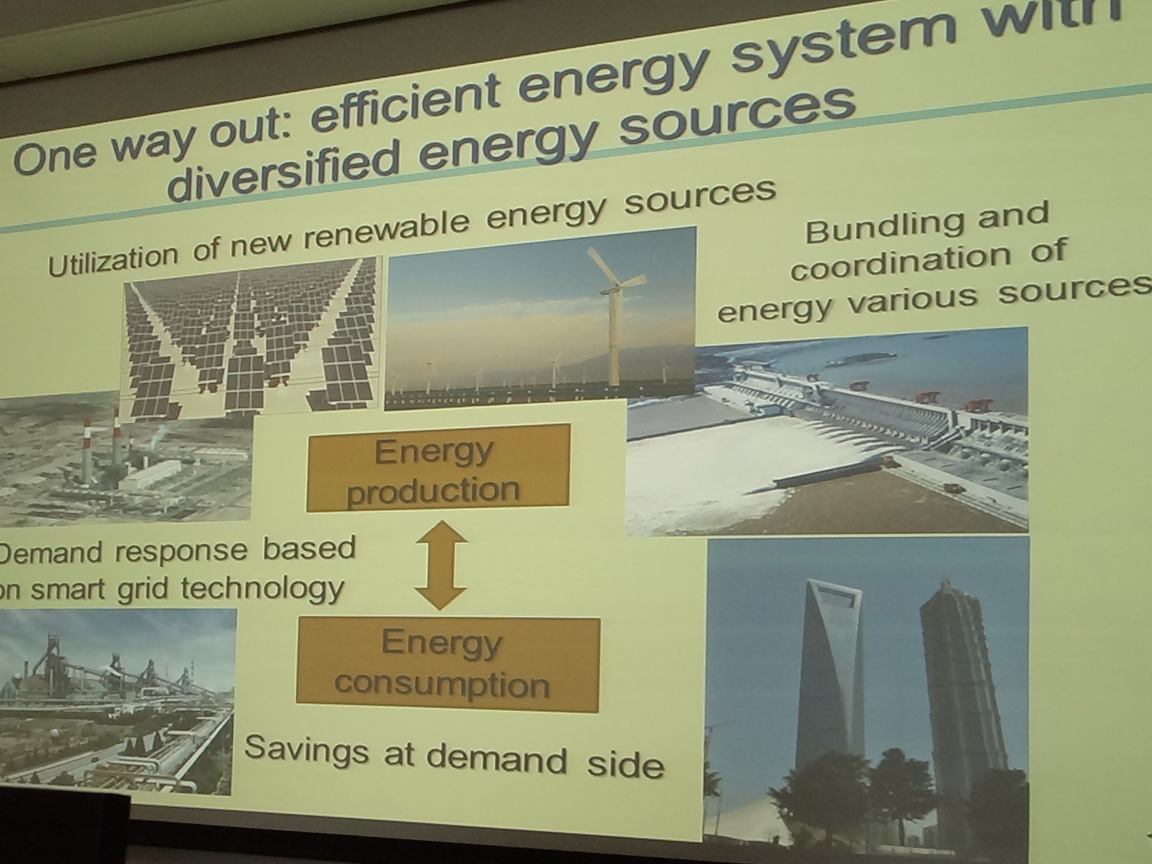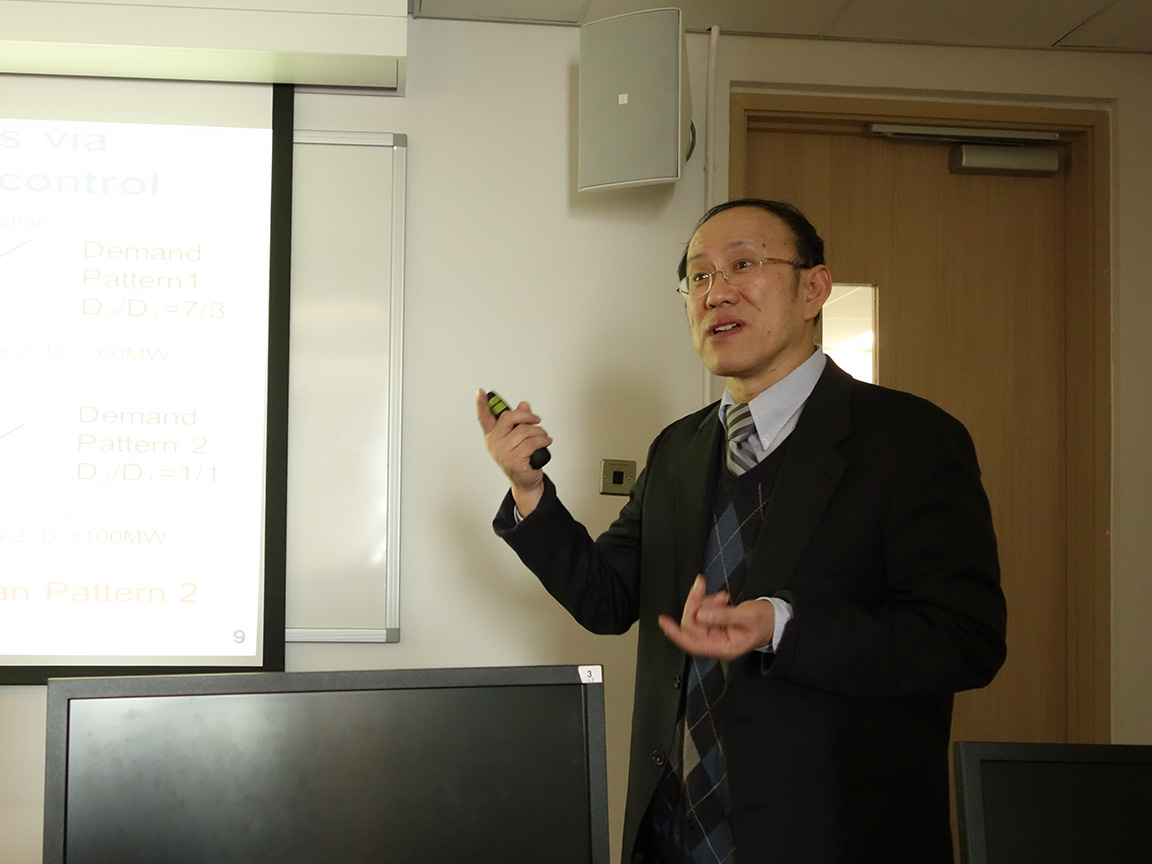 Prof. Xiaohong Guan, Cheung Kong Professor of Systems Engineering, Dean of School of Electronic and Information Engineering at Xi’an Jiaotong University, and Director of the Center for Intelligent and Networked Systems at Tsinghua University gave a lecture on low carbon energy production and efficient energy consumption at Academic 3 on 20th December 2013.
Prof. Xiaohong Guan, Cheung Kong Professor of Systems Engineering, Dean of School of Electronic and Information Engineering at Xi’an Jiaotong University, and Director of the Center for Intelligent and Networked Systems at Tsinghua University gave a lecture on low carbon energy production and efficient energy consumption at Academic 3 on 20th December 2013.
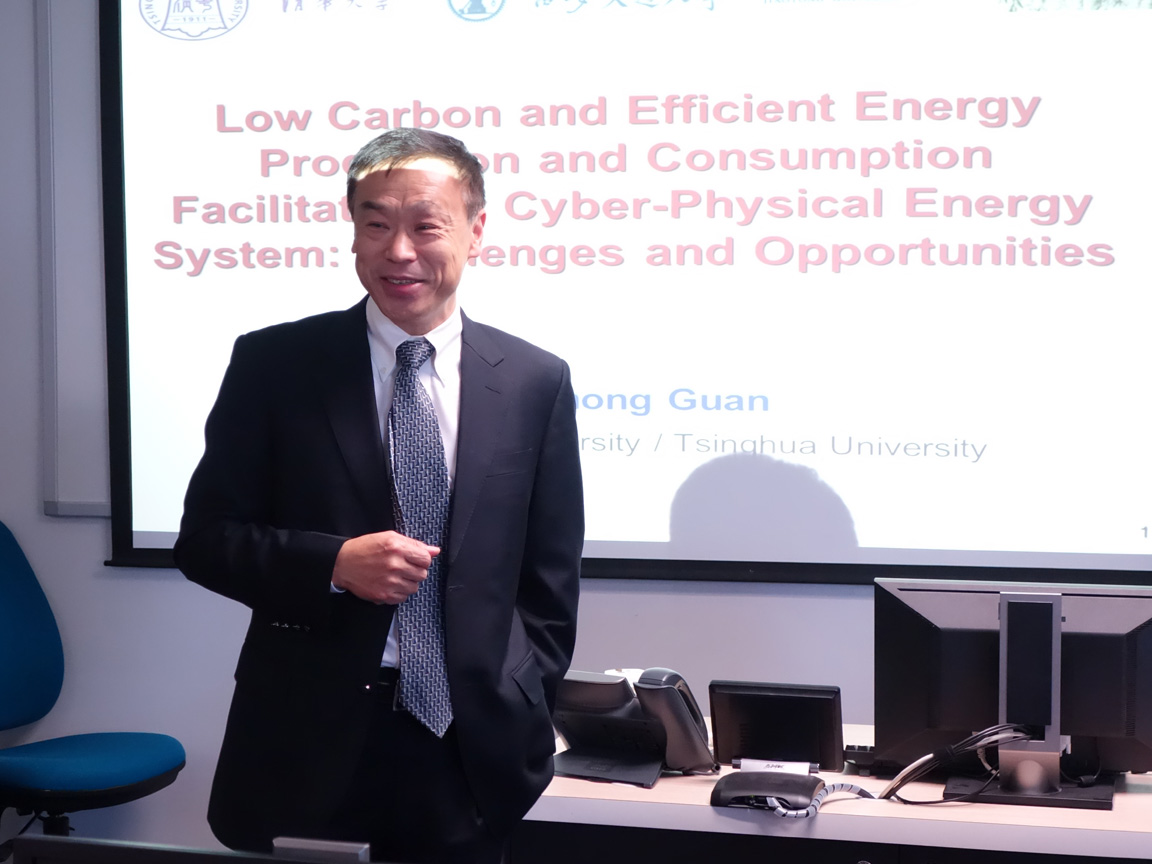 Prof. Houmin Yan, Dean of the College of Business, opened the seminar emphasizing the importance of efficient energy consumption. Prof. Guan then delivered the lecture on the challenges and opportunities of low carbon energy production and efficient energy consumption, exploring a win-win development path for energy, environment and economy.
Prof. Houmin Yan, Dean of the College of Business, opened the seminar emphasizing the importance of efficient energy consumption. Prof. Guan then delivered the lecture on the challenges and opportunities of low carbon energy production and efficient energy consumption, exploring a win-win development path for energy, environment and economy.
Lecture Abstract:
Growing energy demand and environmental concerns requires a large number of renewable energy resources, efficient energy consumption, and energy storage devices and demand response. Cyber-physical energy system provides a desirable infrastructure for efficient energy production and consumption.
To support significant renewable energy penetration, it is essential to analyse the aggregated stochastic characteristics of geographically distributed renewable generation sources with advanced meteorological and energy information sensing. Highly uncertain wind and solar power production must be coordinated with the optimized scheduling of traditional power generation sources and the energy storages such as hydro and pumped storages in order to obtain the lowest production costs or carbon emissions.
Building energy efficiency is extremely important since more than 30% of energy is consumed on buildings. In additional to grid power source, a micro grid for buildings may contain autonomous power generators possibly CHP, renewable energy resources power storage devices and system loads including HVAC systems, lighting equipment, IT data centers, etc. Energy efficient building operation can be achieved through coordinated scheduling and control of the HVAC system, lighting, renewable energy sources, power storages, etc., with many micro sensors for measuring comfort conditions such as temperature, humility, illumination, air quality, etc., and occupant locations and movements.
About the Speaker: http://cfins.au.tsinghua.edu.cn/personalhg/xhguan/
